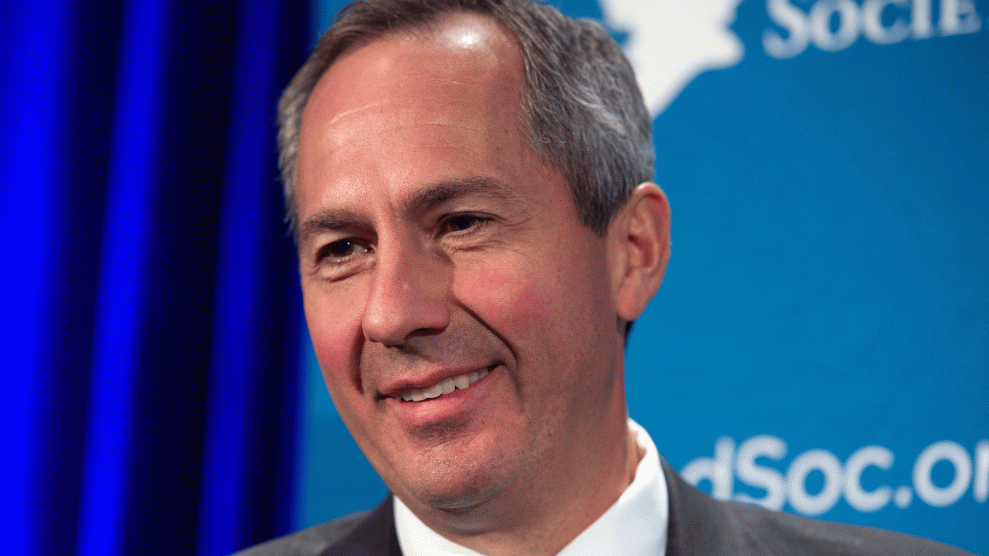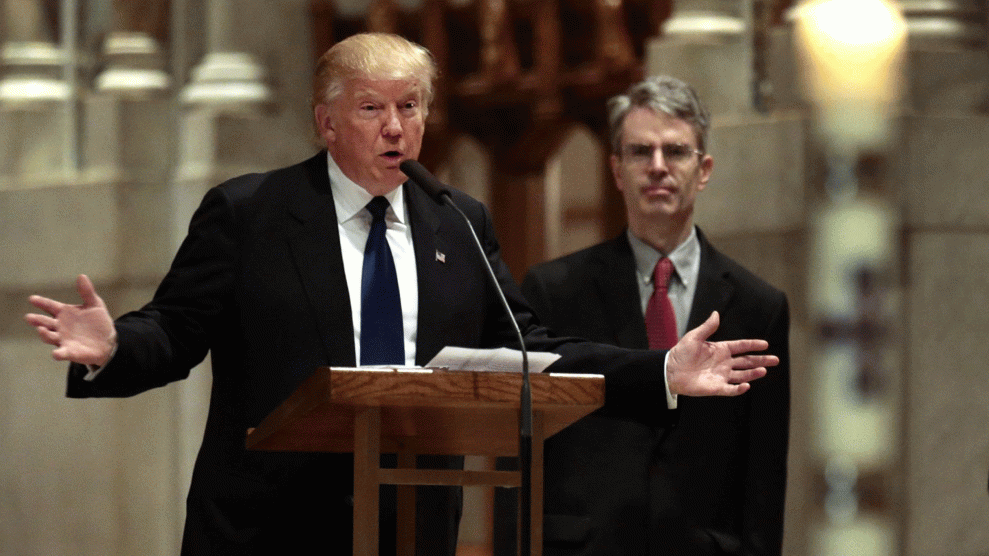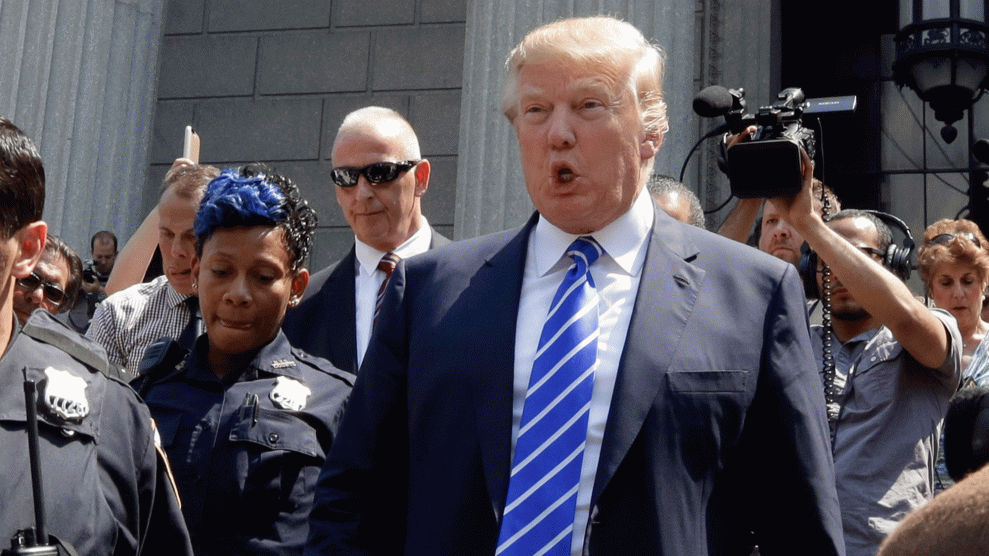
10th Circuit Judge Thomas Hardiman, one of the candidates on President Trump's Supreme Court short listAP Photo/Cliff Owen
President Donald Trump said on Monday that he will announce his Supreme Court during prime time on Tuesday night. He has reportedly narrowed his choices to three candidates, down from 21 potential nominees he identified during the presidential campaign.
But with Trump, there’s always the possibility of a big surprise. Assuming he doesn’t go completely off script (Judge Judy?), here are the candidates he’s likely considering.
William Pryor Jr.
A federal judge on the 11th Circuit Court of Appeals, Pryor previously succeeded Jeff Sessions as Alabama’s attorney general. Sessions, Trump’s nominee for US attorney general, has been Pryor’s top backer. Given Sessions’ considerable influence within the administration, this makes Pryor a leading candidate for the court. But Pryor would face a particularly contentious confirmation hearing. He was filibustered for his first federal judicial appointment during the George W. Bush administration because of what critics called his extremist anti-gay views.
He hails from the Republican camp that believes Americans should be liberated from government interference, except when it comes to their sex lives. He’s vehemently opposed to abortion and called the Roe v. Wade decision legalizing abortion the “worst abomination of constitutional law in our history.” As Alabama attorney general, Pryor defended a ban on the sale of sex toys in the state, writing in a legal brief that “the commerce in sexual stimulation and auto-eroticism, for its own sake, unrelated to marriage, procreation, or familial relations is an evil, an obscenity…detrimental to the health and morality of the state.”
Pryor was an early favorite to fill the empty high court slot, but he seems to have fallen out of favor in the past few weeks. Despite his long record of rulings hostile to gay rights, anti-gay groups have recently opposed Pryor’s potential nomination because he once ruled in favor of a transgender woman who was fired when she began her transition.
Thomas Hardiman
He comes with an endorsement from Trump’s sister, Maryanne Trump Barry, who serves with Hardiman on the 3rd Circuit Court of Appeals. But when George W. Bush nominated Hardiman to a federal trial court in 2003, the American Bar Association gave him a lukewarm “qualified” rating.
Hardiman has a compelling personal story: He’s the first member of his family to go to college, and he put himself through Georgetown law school driving a taxi. He speaks Spanish and volunteered to help undocumented immigrants in DC at the nonprofit legal clinic Ayuda. His wife, Lori Zappala, is part of a powerful Democratic family in Pittsburgh.
While those parts of his résumé might make Hardiman more moderate than some of Trump’s other potential candidates, he isn’t liberal by any stretch. Before joining the federal bench, Hardiman was active in the Pennsylvania GOP and represented the state party in a number of state political fights. In 2006, the late Sen. Arlen Specter described Hardiman as a “protégé” of former Sen. Rick Santorum (R-Pa.). Hardiman was one of several Bush appointees Salon identified as donating to Bush and other Republican politicians with influence on judicial nominations at the same time they were being considered for a lifetime appointment to the federal bench.
In private practice, Hardiman represented communities looking to block low-income housing developments in their neighborhoods, and his history led Democratic senators to question his civil rights record when Bush elevated him to his current seat on the 10th Circuit in 2007. Hardiman doesn’t seem to have ruled in an abortion case, so his views on that contentious issue are unclear. But he does appear to share Pryor’s Puritanism. He once dissented in a 3rd Circuit case in which the court held that a school could not ban “I ♥ Boobies” breast cancer awareness bracelets. Hardiman disagreed, fearing for the delicate sensibilities of middle-schoolers. He wrote, “Many twelve-and thirteen-year-old children are susceptible to juvenile sexualization of messages that would be innocuous to a reasonable adult.” Hardiman envisioned that the ruling could open the floodgates for more risqué slogans.
Neil Gorsuch
Many court watchers, noting Trump’s “central casting” approach to staffing, consider the 10th Circuit judge the favorite for the high court seat, if for no other reason than “he looks the part,” as Empirical SCOTUS blogger Adam Feldman put it. David Lat, founder of legal affairs blog Above the Law, tweeted recently that Gorsuch seems like the obvious choice for Trump because “we all know Trump cares about looks, & Neil ‘Silver Fox’ Gorsuch is taller & handsomer than (the already good-looking) Bill Pryor.” Lat also noted, “Judge Gorsuch is a ‘winner’—brilliant, pedigreed, tall, handsome—and Trump likes winners.” Unlike Pryor and Hardiman, Gorsuch is also an Ivy Leaguer.
An Oxford and Harvard grad, Gorsuch, 49, is also one of the youngest sitting federal judges on Trump’s list—a selling point for a president looking to leave a lasting legacy on the court. He is a conservative in the mold of the late Justice Antonin Scalia and is considered an “originalist” who tries to interpret the law as the Founders would have. Also in his column: As one of the 10th Circuit judges who ruled in favor of Hobby Lobby against the Obama administration—exempting the company from federal requirements to provide employees with insurance plans that included free contraceptive coverage—his religious-right bona fides are solid.
But hard-core anti-abortion activists have been lobbying against Gorsuch and recently asked Trump to consider judges with a more proven record of anti-abortion advocacy from the bench. Andrew Schlafly, son of the late conservative icon Phyllis Schlafly, recently sent out an alert to supporters arguing that Gorsuch is “NOT pro-life” because he wrote an opinion noting his obligation to follow court precedent. Schlafly sees adherence to precedent as a deal-breaker and a sign that a judge won’t overturn Roe.
Pryor, Hardiman, and Gorsuch are the leading candidates for the Supreme Court job, but Trump is unpredictable. So maybe he’ll go with bomb-thrower Texas Supreme Court Justice Don Willett, who calls himself Texas’ most conservative justice. Willett sees very little role for the government in regulating health and safety issues. He once joined with the state court to strike down as unconstitutional training requirements for people who perform eyebrow threading, a hair removal procedure that can spread various diseases, including ringworm and pink eye.
A Reason columnist declared Willett’s concurrence in the case “easily one of the most libertarian legal decisions I’ve ever read.” Willett wrote with outrage about the greater threat to liberty of regulating eyebrow plucking:
This case raises constitutional eyebrows because it asks building-block questions about constitutional architecture—about how we as Texans govern ourselves and about the relationship of the citizen to the State. This case concerns far more than whether Ashish Patel can pluck unwanted hair with a strand of thread. This case is fundamentally about the American Dream and the unalienable human right to pursue happiness without curtsying to government on bended knee.
As far as appearances go, Willett doesn’t necessarily have the central-casting looks that seem so important to Trump. But he does have one quality Trump clearly appreciates: With more than 75,000 followers, Willett is really good on Twitter.
















